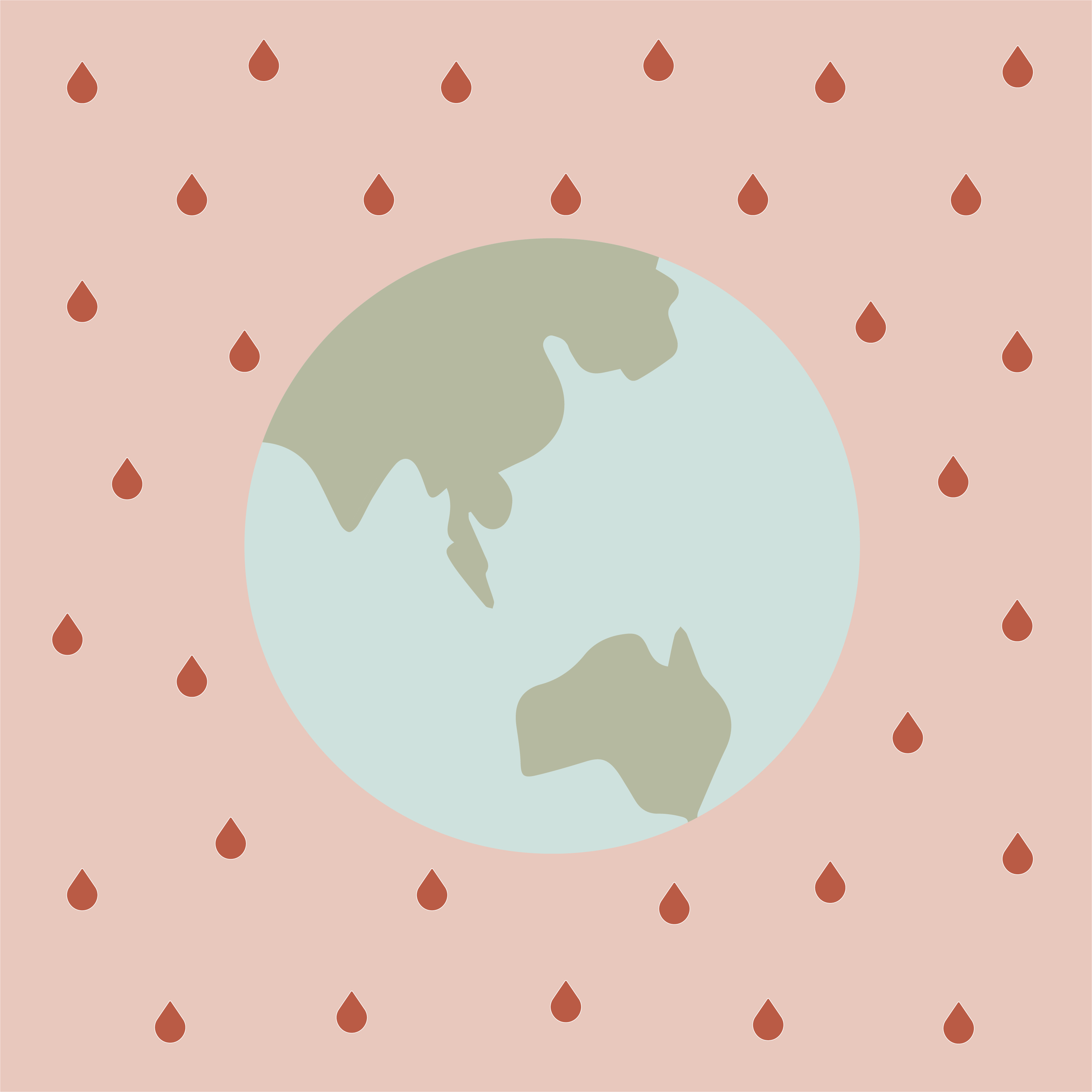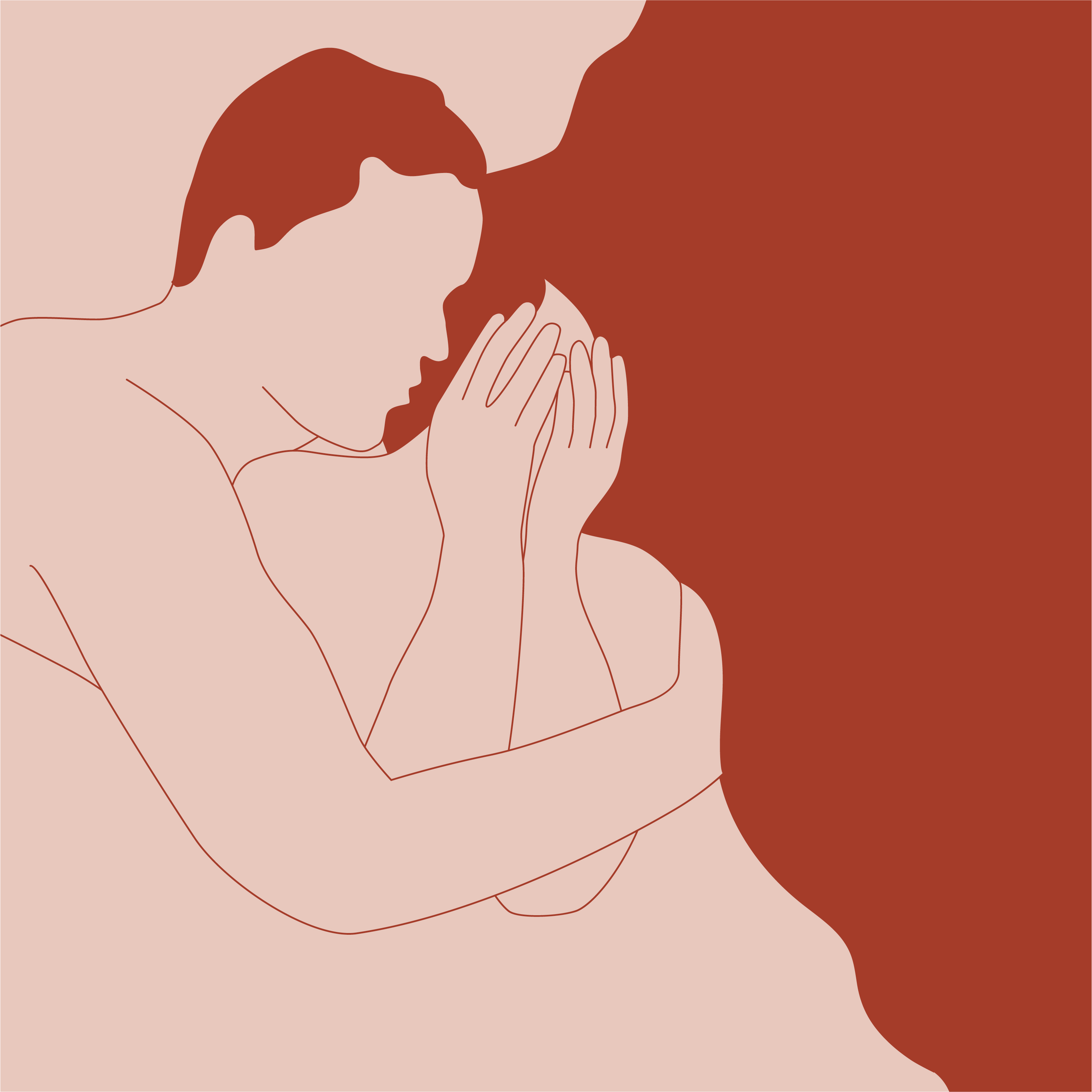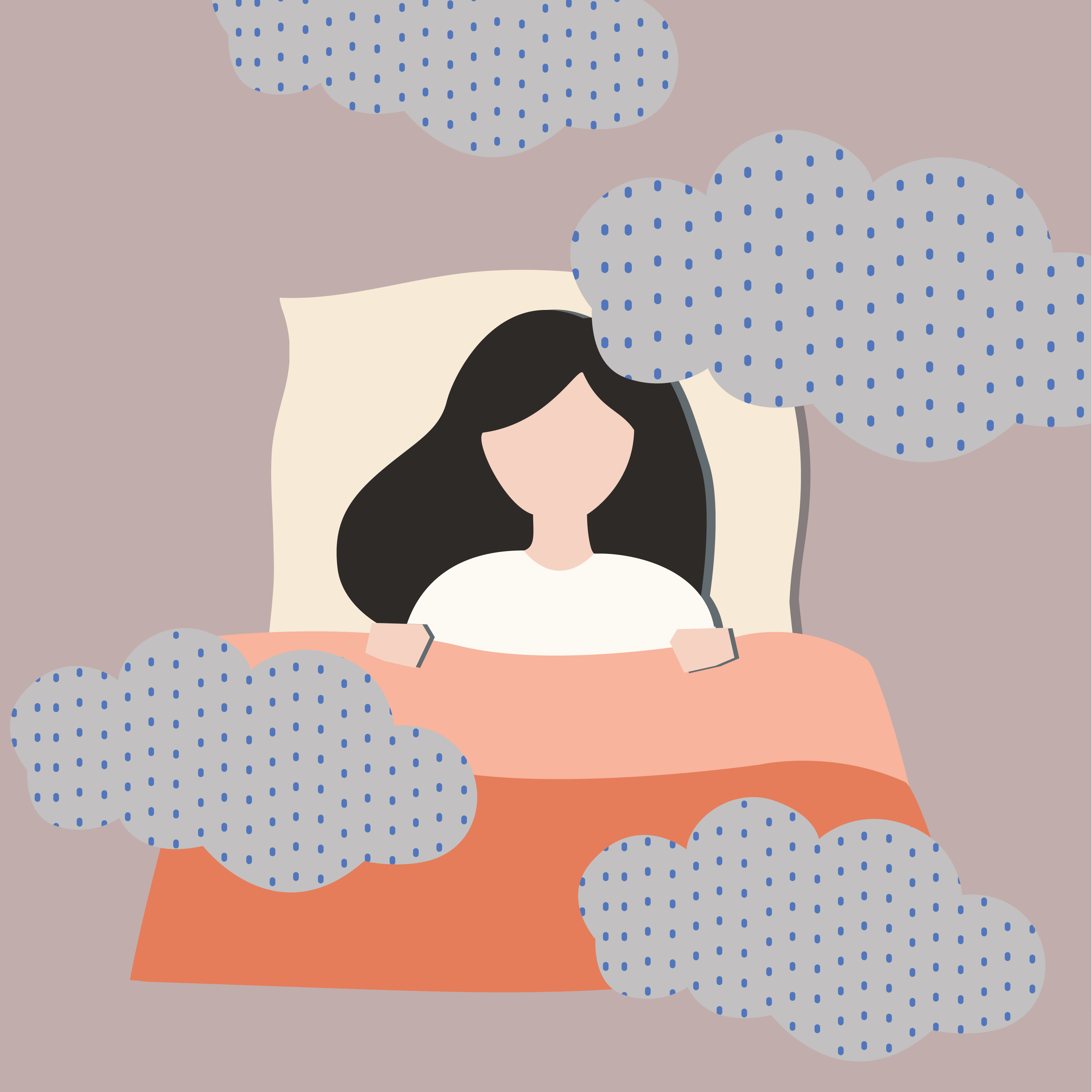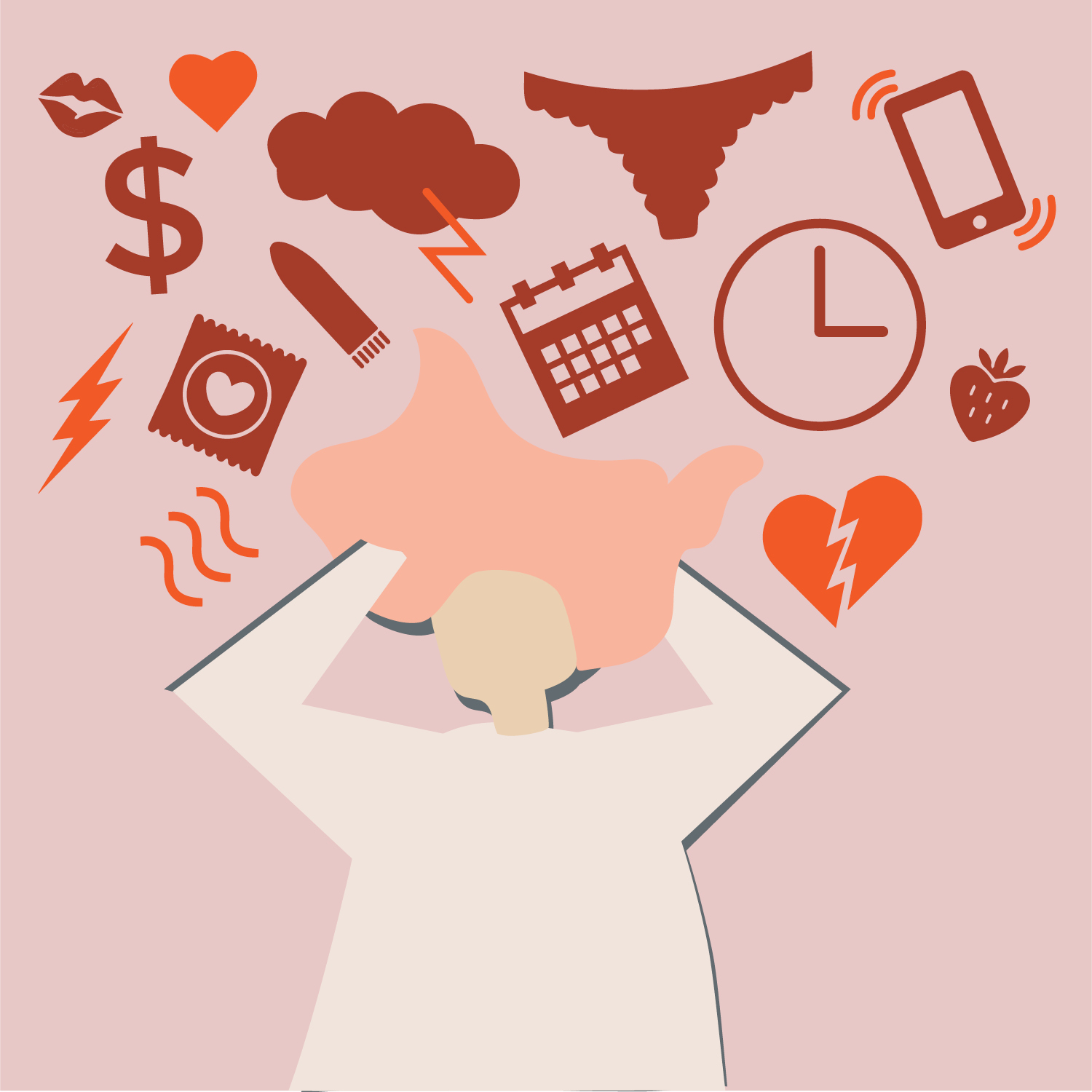Oct 19, 2021
HOW YOUR BREASTS CHANGE DURING YOUR LIFESPAN
There’s a lot to love about breasts, which is why it is so important that we look after them throughout the different stages of our lives. While it is completely normal and healthy for breasts to change over time, it also helps to know what to expect along the way.
Here we outline some of the more common breast changes that you might experience at different times throughout your lifespan, and we speak to Dayle Larter, founder of natural breast care brand Nuni Wellness, about how to care for your breasts at every stage so that they stay happy and healthy.
Puberty
Many teens might be concerned about whether they have ‘normal’ breasts, however everybody is different, and normal breasts can come in a wide range of shapes and sizes. Everyone’s timeline for development is different, as is when their menstrual cycle begins, however some common changes that everybody is likely to experience during this stage include swelling and soreness at different times of the month due to hormonal fluctuation.
Dayle says becoming familiar with the landscape of our boobs during puberty while they’re growing and fluctuating is priceless knowledge to have from a young age. “Getting comfortable with touching your boobs, and taking the time to practise self-care in this way – by tending to them with a positive mindset – has the ability to do wonders for a young person’s body confidence and sense of self-connection,” she says.
Dayle also notes that, once you are tuned in, it’s easier to recognise predictable changes that are part of your menstrual cycle, such as lumps or increased tenderness at certain times.
Reproductive years
Pregnancy can create dramatic changes in your breasts, and these can start to happen very early on – maybe even before you know you’re pregnant! You might experience swelling, soreness and tenderness, with changes continuing throughout your pregnancy such as a feeling of fullness and heaviness in your breasts as milk ducts develop. Your nipples may darken and enlarge, which can cause itchiness or dryness.
During this time when breasts feel heavy and tender, it might be comfortable to sleep in a soft, underwire-free bra in a natural fabric such as organic cotton or bamboo. Getting plenty of rest and sleep, staying hydrated by drinking lots of water and limiting your caffeine intake, as well as eating well, can all help to balance your hormones and keep your breasts healthy.
Stretch marks are common during pregnancy, and while there’s no miracle cure, keeping your skin supple and moisturised can help. Dayle recommends practising regular breast massages at all stages, though this might be particularly beneficial in keeping breasts healthy during pregnancy. “Breast massages can stimulate drainage of the breasts’ lymphatic system, which eliminates harmful waste products and allows nutrient-rich blood to travel to the breast tissue,” says Dayle. Using a massage oil can assist with discomfort from itchiness or dryness.
Post-Partum
After giving birth, your breasts will remain large while they continue to produce milk. It is still important to examine your breasts in the months after you stop breastfeeding for any irregularities. Your nipples may or may not go back to their original size and shape, and your breasts may remain larger and/or lose some of their elasticity. This depends on several factors including genetics, weight gain during pregnancy, and the length of time you breastfeed.
“Caring for your breasts while you’re breastfeeding can help you stay healthy and prevent issues that can lead to breastfeeding problems and potentially infection,” says Dayle, who recommends daily breast self-massages using an oil of choice to help your hands glide smoothly over the skin or conducted in the shower under warm water if this feels good.
“Generally, massaging towards the armpit is optimal for lymphatic drainage, but when lactating, we need to massage towards the nipples, in order to keep milk ducts flowing and free of dreaded mastitis,” she says. “The body’s lymphatic system is highly concentrated in the underarm and chest regions. Breast massage is a reliable means of flushing out toxins from the body’s lymphatic system.”
Perimenopause and menopause
As women enter perimenopause and menopause, they are likely to start noticing changes in the size and shape of their breasts. During this time, breasts may feel tender, achy, and lumpier than usual. Periods start to become less regular and/or irregular due to hormonal changes, and when they do come, breasts can feel swollen and tender. As you near menopause, your levels of estrogen drop dramatically, leading to many of the symptoms associated with menopause. Your milk system starts to shut down and glandular tissue in your breasts shrinks, causing breasts to become less dense.
“85 per cent of women with breast pain gained relief when they wore a well-fitted sports bra, according to recent studies.” Dayle adds that the same researchers found relaxation techniques and massaging achy breasts can be very helpful for many women.
“It’s important for women to be really in touch with their breasts, so that they can feel equipped and reassured in their ability to notice what is normal, what’s not, and what helps,” says Dayle. “That knowledge empowers you to make a smooth midlife transition and feel your best during menopause and beyond.” Dayle says that some women find when they cut down on caffeine, their breasts are less tender. “You can also apply heat – try a warm compress – as well as regular breast massage,” she says.
Regular breast self-exams and massages can help you to familiarise yourself with your breasts and notice any changes. The frequency of recommended physical check-ups and scans depends on your age and medical history, so ask your GP.
As Dayle notes, there are plenty of small changes we can make to optimise breast wellness and therefore minimise our risk of breast cancer, increase disease prevention, and improve our overall health. It can be reassuring to know that even the healthiest breasts will change throughout your lifespan – just be sure to have a chat with your doctor about any unexpected lumps, bumps, soreness or concerns along the way.
Blogs

Jun 08, 2022
EXPLORING PERIOD CARE IN CULTURES AROUND THE WORLD
Our TOM Talks panelist Sabina McKenna explores how different cultures around the world approach period care.
Read More
Jun 08, 2022
STOP APOLOGISING FOR HAVING YOUR PERIOD
Our TOM Talks panelist Mel Mason talks about the importance of not apologising for having your period.
Read More
Jun 07, 2022
STRESSED? NOT SLEEPING? TRYING TO CONCEIVE?
TOM Talk's panelist Georgia Hartmann discussed the links between stress, sleep and fertility.
Read More
Jun 07, 2022
STRESS AND HOW IT AFFECTS YOUR SEX DRIVE
Certified sex coach Georgia Grace is here to unpack the link between stress and sex.
Read More